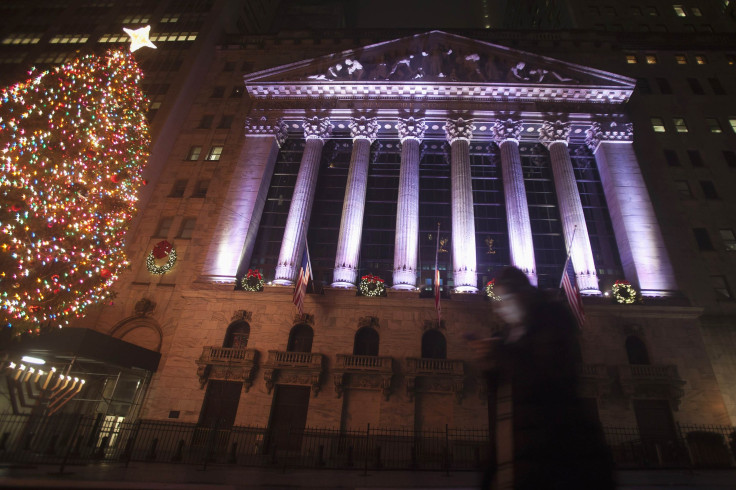Dow Jones Industrial Average Closes 2014 Below 18,000 Milestone, But Gains 7.52% For The Year

U.S. stocks closed lower Wednesday, with the Dow Jones Industrial Average falling below the psychologically important 18,000 milestone, as stocks traded in light volume during the final day of trading in 2014. But for the year, the blue-chip Dow gained 7.52 percent and recorded 38 record closing highs.
Meanwhile, the S&P 500 Index erased its monthly gains made in December but advanced 11.39 percent for the year, for its third consecutive annual gain. The broad-based stock index also tallied its 53rd record close of 2014 on Monday. The tech-heavy Nasdaq Composite gained 13.40 percent for the year.
During Wednesday’s trading session, the Dow, which measures the share prices of 30 large industrial companies, fell 160 points, or 0.89 percent, to close at 17,823.07; the S&P 500 stock index lost 21.45 points, or 1.03 percent, to end at 2,058.90. The Nasdaq fell 41.39 points, or 0.87 percent, to finish at 4,736.05.
It looks like next year will be a continuation of 2014, meaning 2015 will be another good year for the U.S. stock market, Jeff Kravetz, regional investment director at U.S. Bank Wealth Management, said. “Next year will be another good year because the U.S. was the best game in town this past year and that will continue to be so because of a few factors -- strong job growth, healthy corporate earnings, falling gas prices, which is good for consumers, and the Federal Reserve, which is very supportive of equity markets, meaning they’re going to be patient as far as raising interest rates.”
Most economists expect the central bank to hike rates in the middle of 2015. What will ultimate affect the stock market next year, according to Brian Reid, chief economist at the Investment Company Institute, is what’s driving the Fed’s decision to raise rates next year. “Is it solely about inflation, or do they feel the U.S. economy is growing at a robust pace and, therefore, they don’t need to provide as much stimulus," Reid said. "If it’s the latter, that could actually be a forecast that the U.S. economy has got legs and this period of growth is going to be self-sustaining, and that could be actually very positive for the stock market.”
The U.S. stock market will be closed on Thursday for the New Year's holiday.
© Copyright IBTimes 2025. All rights reserved.






















